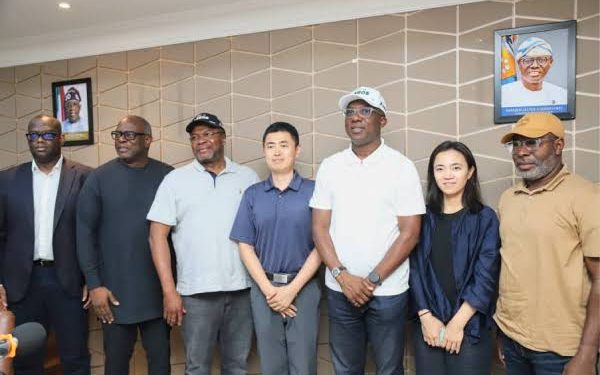The Lagos State Government has announced its readiness to collaborate with China under the China-Nigeria Low-Carbon Demonstration Initiative (Nextier) on the Lekki Low-Carbon Demonstration Zone Project. This partnership is aimed at significantly reducing carbon emissions while supporting climate-friendly development across the state.
The announcement was made during a strategic meeting between the Lagos State Ministry of Environment and Water Resources and the Nextier team at Alausa, Ikeja. The Commissioner for Environment and Water Resources, Tokunbo Wahab, stated that the collaboration aligns with the state’s climate ambitions and existing policy frameworks.
Wahab described the project as a meaningful step forward in the fight against climate change, saying it supports Lagos’ broader strategy for sustainable urban development. He highlighted the state’s ongoing efforts, including the Lagos Climate Adaptation Resilience Action Plan, launched at the Lagos International Climate Change Summit in 2023, as part of its roadmap to build climate resilience.
The Lekki Low-Carbon Demonstration Zone Project is expected to contribute to lowering the state’s climate risk index, reducing air pollution and airborne diseases, and improving public health outcomes. It will also promote access to clean energy and create new green jobs—while positioning Lagos and Nigeria for greater competitiveness in the global sustainability space.
Wahab expressed optimism that the project would not only provide environmental benefits but also open the door to economic opportunities. “This partnership is a practical way to show our commitment to climate-positive growth while boosting innovation and energy access,” he said.
Also speaking at the meeting, Director of the National Council on Climate Change, Michael Ivenso, explained that the visit of the Chinese delegation was part of a broader move to strengthen bilateral cooperation and drive private sector engagement in climate action.
He noted that Lagos offers an enabling environment for investors and innovators in the low-carbon economy to thrive, and emphasized the importance of leveraging such international partnerships to drive local impact.
To support the initiative, Wahab assured that the ministry would provide relevant data, human resources, and financial backing. He reaffirmed Lagos State’s commitment to ensuring the successful implementation of the demonstration project, which is expected to serve as a model for other states across the country.










